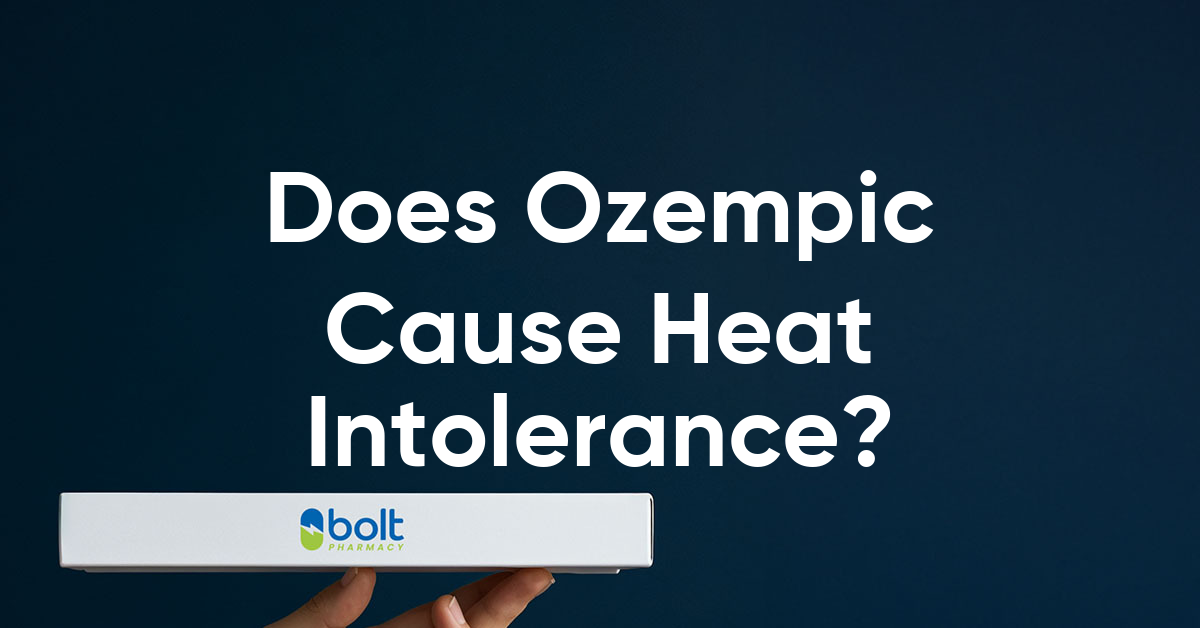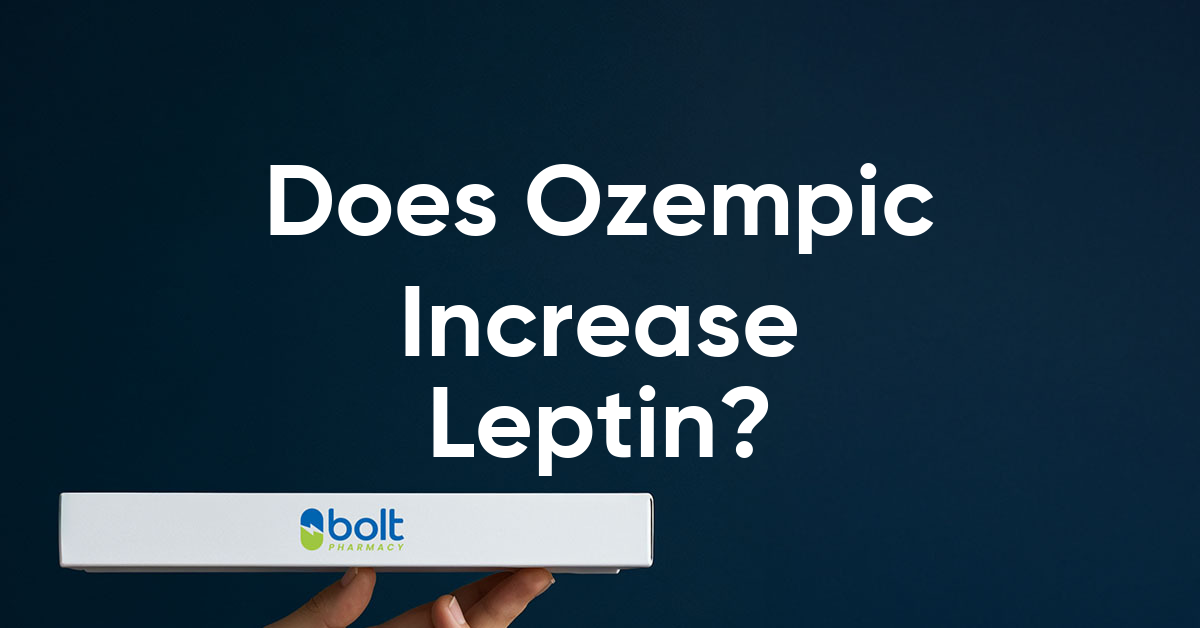Many people using Ozempic (semaglutide) for type 2 diabetes wonder whether the medication might cause heat intolerance or increased sensitivity to warm temperatures. Whilst heat intolerance is not listed as an established side effect in official UK regulatory guidance, some patients report anecdotal experiences of temperature sensitivity. Understanding the potential mechanisms behind these reports—including dehydration from gastrointestinal side effects and metabolic changes—can help you manage symptoms effectively and know when to seek medical advice. This article examines the evidence, explores possible explanations, and provides practical guidance for maintaining comfort and safety whilst taking Ozempic.
Summary: Heat intolerance is not an established side effect of Ozempic according to UK regulatory data, though some patients report anecdotal temperature sensitivity.
- Ozempic (semaglutide) is a GLP-1 receptor agonist licensed in the UK for type 2 diabetes management, not weight loss.
- Gastrointestinal side effects such as nausea, vomiting, and diarrhoea may cause dehydration, potentially affecting temperature regulation.
- No clinical trials or post-marketing surveillance have established a causal link between semaglutide and heat intolerance.
- Maintain adequate hydration (1.5–2 litres daily) and use environmental modifications to manage any temperature sensitivity.
- Seek urgent medical attention for severe dehydration, heat stroke symptoms, or persistent vomiting with abdominal pain.
- Report suspected side effects through the MHRA Yellow Card Scheme and discuss concerns with your diabetes care team.
Table of Contents
What Is Ozempic and How Does It Work?
Ozempic (semaglutide) is a prescription medication licensed in the UK for the treatment of type 2 diabetes mellitus. It belongs to a class of drugs known as glucagon-like peptide-1 (GLP-1) receptor agonists, which work by mimicking the action of a naturally occurring hormone that regulates blood glucose levels.
The mechanism of action involves several key processes:
-
Stimulating insulin secretion from pancreatic beta cells in response to elevated blood glucose
-
Suppressing glucagon release, which reduces glucose production by the liver
-
Slowing gastric emptying, leading to more gradual absorption of nutrients
-
Reducing appetite through effects on brain centres that control satiety
Ozempic is administered as a once-weekly subcutaneous injection, typically starting at 0.25 mg and gradually increasing to maintenance doses of 0.5 mg, 1 mg or 2 mg, depending on individual response and tolerability. The Medicines and Healthcare products Regulatory Agency (MHRA) has approved it specifically for glycaemic control in adults with type 2 diabetes, often in combination with other glucose-lowering medications or as monotherapy when metformin is contraindicated.
Whilst Ozempic has demonstrated significant benefits in reducing HbA1c levels and may promote weight loss—which can improve cardiovascular risk factors—it is important to note that it is not licensed for weight management in the UK. It is not without potential adverse effects. Common side effects include gastrointestinal symptoms such as nausea, vomiting, diarrhoea, and constipation. When used with insulin or sulfonylureas, there is an increased risk of hypoglycaemia, which may require dose adjustments of these medications.
Heat intolerance or changes in temperature regulation are not listed as established side effects in the official Summary of Product Characteristics (SmPC) for Ozempic.

Why Some People Experience Temperature Sensitivity on Ozempic
Heat intolerance is not listed as an official or common side effect of Ozempic in the Summary of Product Characteristics (SmPC) approved by the MHRA or European Medicines Agency (EMA). Some patients have reported anecdotal experiences of increased sensitivity to heat whilst taking semaglutide, but there is no established causal link from clinical trials or post-marketing surveillance data.
Several hypothetical mechanisms might explain these anecdotal reports, though these remain speculative and not clinically proven for semaglutide:
Dehydration represents a plausible contributing factor. The gastrointestinal side effects of Ozempic, particularly nausea, vomiting, and diarrhoea, can lead to fluid loss. Even mild dehydration impairs the body's ability to regulate temperature through sweating and peripheral vasodilation. Patients who experience reduced appetite may also inadvertently decrease their fluid intake, compounding this issue.
Metabolic changes associated with GLP-1 receptor agonists could theoretically play a role. As Ozempic may promote weight loss, the body undergoes metabolic adaptations. Changes in body composition might potentially alter how efficiently the body manages core temperature in warm conditions, though this has not been specifically demonstrated for semaglutide.
Autonomic nervous system effects have been hypothesised. GLP-1 receptors are present in various tissues beyond the pancreas, including the cardiovascular and nervous systems. However, there is no established direct link between semaglutide and autonomic dysfunction affecting temperature regulation.
It is important to emphasise that there is no official link between Ozempic and heat intolerance established through clinical trials. Any temperature-related symptoms should be evaluated by a healthcare professional to rule out other medical causes such as infection, thyroid disorders, menopause, anaemia, or effects from other medications.
Managing Heat Sensitivity While Taking Ozempic
If you experience increased sensitivity to heat whilst taking Ozempic, several practical strategies can help manage this symptom and maintain your comfort and safety, particularly during warmer months or in heated environments.
Optimising hydration is paramount. Aim to drink adequate fluids throughout the day, with a general recommendation of 1.5 to 2 litres of water daily, adjusted for activity level and climate. If you have heart or kidney disease, or are on fluid restriction, consult your healthcare professional about safe fluid targets. If you are experiencing gastrointestinal side effects, consider:
-
Sipping small amounts of fluid frequently rather than large volumes at once
-
Including oral rehydration solutions if diarrhoea or vomiting is significant
-
Monitoring urine colour as a simple indicator of hydration status (pale yellow suggests adequate hydration)
-
Avoiding excessive caffeine and alcohol, which can contribute to fluid loss
Environmental modifications can significantly reduce heat-related discomfort:
-
Stay in air-conditioned or well-ventilated spaces during peak heat
-
Wear loose-fitting, breathable clothing made from natural fibres
-
Use cooling aids such as damp cloths, fans, or cooling vests when necessary
-
Plan outdoor activities for cooler parts of the day (early morning or evening)
-
Take regular breaks in shaded or cool areas during physical activity
Nutritional considerations also matter. Ensure you maintain adequate electrolyte balance, particularly if appetite is reduced. Small, frequent meals that include sources of sodium and potassium can support proper fluid balance and thermoregulation.
Medication storage requires attention—Ozempic pens should be stored in a refrigerator (2-8°C) before first use; do not freeze. After first use, the pen can be stored below 30°C or in a refrigerator for up to 6 weeks. Always protect from light and heat.
If you experience significant vomiting or diarrhoea, be aware this can lead to dehydration and potentially acute kidney injury. Follow any sick day guidance provided by your healthcare team and seek medical advice promptly if unable to maintain hydration.
When to Seek Medical Advice About Side Effects
Whilst mild temperature sensitivity may not require immediate medical intervention, certain symptoms warrant prompt evaluation by a healthcare professional. Understanding when to seek advice ensures your safety and allows for timely management of potentially serious complications.
Seek urgent medical attention (contact 999 or attend A&E) if you experience:
-
Signs of severe dehydration: extreme thirst, very dark urine, dizziness, confusion, or reduced urine output
-
Heat exhaustion or heat stroke: high body temperature (above 40°C), rapid pulse, headache, nausea, or altered consciousness
-
Severe abdominal pain, particularly if accompanied by persistent vomiting, which could indicate pancreatitis (a rare but serious side effect of GLP-1 agonists)
-
Allergic reactions: difficulty breathing, swelling of face or throat, or widespread rash
Contact your GP or diabetes care team within 24–48 hours if you notice:
-
Persistent heat intolerance that significantly affects daily activities or quality of life
-
Ongoing gastrointestinal symptoms lasting more than a few days, which may require dose adjustment
-
Signs of mild to moderate dehydration that do not improve with increased fluid intake
-
New or worsening symptoms that concern you, even if they seem unrelated to temperature
If you cannot contact your GP and need urgent but non-emergency advice, call NHS 111.
If you experience sweating, tremor, or palpitations, be aware these could potentially indicate hypoglycaemia, especially if you also take insulin or sulfonylureas. Check your blood glucose if possible.
Routine review is appropriate for:
-
Discussing heat sensitivity at your next scheduled diabetes appointment
-
Reviewing the overall benefit-risk profile of continuing Ozempic
-
Exploring whether dose adjustment might reduce side effects whilst maintaining glycaemic control
According to NICE guidance on type 2 diabetes management, regular monitoring and patient-centred care are essential. Your healthcare team should work collaboratively with you to optimise treatment, balancing efficacy with tolerability. Never discontinue Ozempic without medical guidance, as abrupt cessation could lead to deterioration in blood glucose control.
If you suspect you're experiencing a side effect from Ozempic, you can report this through the MHRA Yellow Card Scheme (yellowcard.mhra.gov.uk or via the Yellow Card app).
Frequently Asked Questions
Is heat intolerance a recognised side effect of Ozempic?
No, heat intolerance is not listed as an established side effect in the official Summary of Product Characteristics approved by the MHRA or EMA. Some patients report anecdotal temperature sensitivity, but no causal link has been proven through clinical trials.
Why might some people feel more sensitive to heat on Ozempic?
Possible explanations include dehydration from gastrointestinal side effects like nausea, vomiting, or diarrhoea, and metabolic changes associated with the medication. However, these remain hypothetical and have not been clinically proven for semaglutide.
When should I seek medical advice about temperature sensitivity on Ozempic?
Seek urgent medical attention for signs of severe dehydration, heat stroke (body temperature above 40°C), or severe abdominal pain. Contact your GP within 24–48 hours if heat intolerance significantly affects daily activities or if gastrointestinal symptoms persist.
The health-related content published on this site is based on credible scientific sources and is periodically reviewed to ensure accuracy and relevance. Although we aim to reflect the most current medical knowledge, the material is meant for general education and awareness only.
The information on this site is not a substitute for professional medical advice. For any health concerns, please speak with a qualified medical professional. By using this information, you acknowledge responsibility for any decisions made and understand we are not liable for any consequences that may result.
Heading 1
Heading 2
Heading 3
Heading 4
Heading 5
Heading 6
Lorem ipsum dolor sit amet, consectetur adipiscing elit, sed do eiusmod tempor incididunt ut labore et dolore magna aliqua. Ut enim ad minim veniam, quis nostrud exercitation ullamco laboris nisi ut aliquip ex ea commodo consequat. Duis aute irure dolor in reprehenderit in voluptate velit esse cillum dolore eu fugiat nulla pariatur.
Block quote
Ordered list
- Item 1
- Item 2
- Item 3
Unordered list
- Item A
- Item B
- Item C
Bold text
Emphasis
Superscript
Subscript












